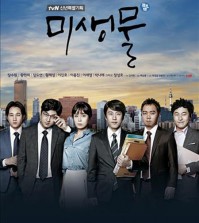- California Assembly OKs highest minimum wage in nation
- S. Korea unveils first graphic cigarette warnings
- US joins with South Korea, Japan in bid to deter North Korea
- LPGA golfer Chun In-gee finally back in action
- S. Korea won’t be top seed in final World Cup qualification round
- US men’s soccer misses 2nd straight Olympics
- US back on track in qualifying with 4-0 win over Guatemala
- High-intensity workout injuries spawn cottage industry
- CDC expands range of Zika mosquitoes into parts of Northeast
- Who knew? ‘The Walking Dead’ is helping families connect
‘Snack culture’
Fast-changing web-based content spawns new pop sub-genres

Digital users typically consume online cultural content on average 10 minutes. Referring to this quick habit of consuming information and cultural resources, the so-called “snack culture” is becoming representative
of the Korean cultural scene. (Korea Times file)
By Chung Ah-young
It’s easy to find Koreans reading news articles or watching films or dramas on their smartphones on a subway or bus.
To cater to this increasing number of mobile users whose tastes are changing fast, the web-based cultural content is churning out diverse sub-genres from conventional formats of dramas and cartoons to novels.
Digital users typically consume online cultural content on average 10 minutes. Mainly on the move, they get addicted to the short segments. Referring to this quick habit of consuming information and cultural resources rather than engaging in a deeper read, the so-called “snack culture” is becoming representative of the Korean cultural scene.
The Ministry of Culture, Sports and Tourism recently published a report titled “Trends in Culture and Art for 2014” in association with the Korea Culture and Tourism Institute. In this report, the snack culture will be one of the core trends predicted to grow rapidly this year. Web-based contents such as dramas, films, cartoons and novels that can be consumed in minutes is expected to thrive.
“Due to the wider use of smartphones, the snack culture is expected to get a boost this year,” a ministry official said.
Naver, the nation’s largest portal site, launched a web drama series, “The Aftereffect” on Jan. 6. The series revolves around a high school boy named Ahn Dae-yong who gains a supernatural power of predicting the imminent death of people after falling from a roof top.
Within nine days after the drama was first posted on its TV cast, it has garnered more than 2 million views. The Aftereffect adopts a different streaming format, involving the release of several short episodes at a time to reflect viewers’ habit of watching the show at their leisure time. It models after the streaming format of Netflix’s political thriller, “House of Cards,” which became the first web-only series to win an award during a Primetime Emmys in 2013. The Emmys began recognizing the notable web television series from 2007.

“The Hungry Woman,” a mobile film based on the eponymous webtoon, deals with a single woman’s life in her 30s and connects it with food. It has so far hit some 3.2 million views on Naver’s TV cast. (Courtesy of Naver)
The short film based on the web cartoon “Misaeng” by Yoon Tae-ho showed the potential of growth of the web-based shorts. With some 10-minute-long running time, it received 1.5 million hits within three weeks of its release last year and has recently received about 3.5 million views.
The web film portrays interpersonal relations between employees of Korean corporations, focusing on the daily grind and survival in the corporate culture. It draws an analogy between life in modern society and the game of baduk.
The sensational cartoon has struck a chord with corporate employees. Responding to the enormous popularity, it was made into the short mobile flick last year, starring Yim Si-wan, a member of K-pop group ZE:A for the lead role of Jang Geu-rae, the protagonist in an omnibus format.
Also, “The Hungry Woman,” a mobile film based on the eponymous webtoon, deals with a single woman’s life in her 30s and connects it with food. It has so far hit some 3.2 million views on Naver’s TV cast. CJ E&M’s “20 Years Old,” which consists of four episodes, was released on Dec. 19, targeting a young audience.
The online novels are already expanding their horizons from traditional literary fictions to “genre fiction” or popular fiction.
“Gwanghae’s Lover” has been recently published in hardcopy after becoming the top-grossing web novel among the paid service fictions on Naver. More recently, the so-called “smart fiction,” which combines elements from literary fiction and games, is making waves among digital-savvy young people.
The genre fiction has long been consumed on the periphery of mainstream literature but is now enjoying rising popularity on online platforms. NHN launched a web novel section last year to post a slew of genre fictions which target their specific fans.
Yes24, the online bookstore, also provides an e-page section for online fiction since last May.
As more and more people are getting used to the new platforms through the web comics, so are they gaining easy access to the online fictions, which are updated quickly and enjoyable regardless of time and space.
Also, amateur authors post their novels on their private blogs, diversifying the sub-genres of the e-novels. On Naver, some 300 novels are posted daily with 61 professional authors and 62,000 amateurs.
Prominent authors such as Park Bum-shin, Hwang Suk-young and Jo Jung-rae are joining the tide of digital publications.
Park first published his novel, “Cholatse,” in installments on Naver in 2007, becoming the first Korean novelist to post his novel on the Internet.
Online publishing is steadily becoming a common method for authors to promote their literary works. Recently, Jo, renowned for his saga “The Taebaek Mountain Range,” serialized his new novel “Jungle Great” on Naver. Set in Beolgyo, South Jeolla Province, the tale depicts the struggles of Korean businessmen in China, and has already garnered more than 12 million page views. After finishing the online serialized release, his novel was published in hardback, selling more than 1 million copies.















